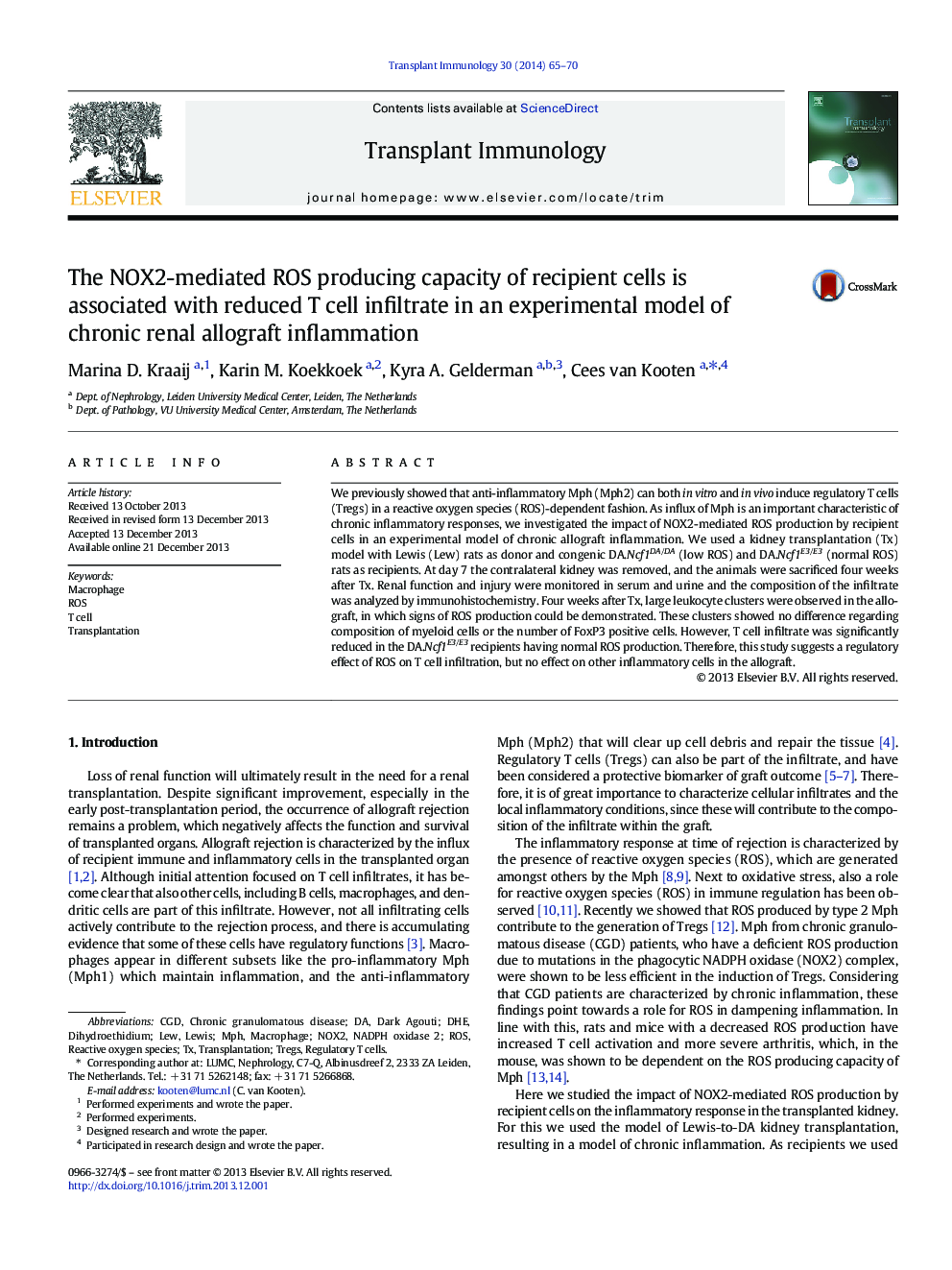| Article ID | Journal | Published Year | Pages | File Type |
|---|---|---|---|---|
| 3392117 | Transplant Immunology | 2014 | 6 Pages |
•No difference in the myeloid cells in DA.Ncf1DA/DA and DA.Ncf1E3/E3 rats•No difference in FoxP3 positive cells in DA.Ncf1DA/DA and DA.Ncf1E3/E3 rats•Reduced T cell infiltrate in the DA.Ncf1E3/E3 recipients with normal ROS production
We previously showed that anti-inflammatory Mph (Mph2) can both in vitro and in vivo induce regulatory T cells (Tregs) in a reactive oxygen species (ROS)-dependent fashion. As influx of Mph is an important characteristic of chronic inflammatory responses, we investigated the impact of NOX2-mediated ROS production by recipient cells in an experimental model of chronic allograft inflammation. We used a kidney transplantation (Tx) model with Lewis (Lew) rats as donor and congenic DA.Ncf1DA/DA (low ROS) and DA.Ncf1E3/E3 (normal ROS) rats as recipients. At day 7 the contralateral kidney was removed, and the animals were sacrificed four weeks after Tx. Renal function and injury were monitored in serum and urine and the composition of the infiltrate was analyzed by immunohistochemistry. Four weeks after Tx, large leukocyte clusters were observed in the allograft, in which signs of ROS production could be demonstrated. These clusters showed no difference regarding composition of myeloid cells or the number of FoxP3 positive cells. However, T cell infiltrate was significantly reduced in the DA.Ncf1E3/E3 recipients having normal ROS production. Therefore, this study suggests a regulatory effect of ROS on T cell infiltration, but no effect on other inflammatory cells in the allograft.
